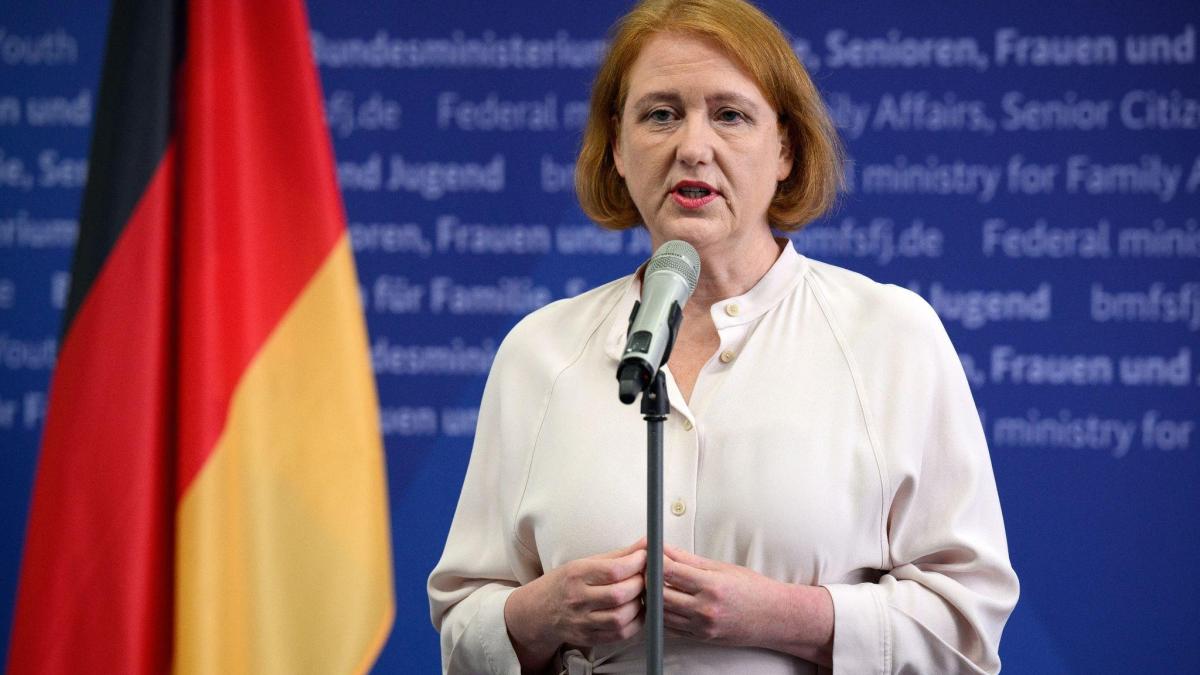Federal Family Minister Lisa Paus expresses concern for the future of democratic initiatives in Eastern Germany amid rising support for the AfD party.

Democracy initiatives at risk in the East
Federal Family Minister Lisa Paus has voiced her concerns about the work of people engaged in promoting democracy in Eastern Germany, given the high approval ratings for the AfD party in the region. “If states or municipalities withdraw their funding as a result and abandon initiatives and associations, it very concretely affects the local work of countless volunteers for our diverse democracy,” the Green politician told the German Press Agency (dpa). She expressed worry about the influence of right-wing forces in this context.
Paus visited several initiatives, projects, and companies in Saxony-Anhalt, Thuringia, and Saxony this week. Many engaged individuals there expressed concern that funding and positions, particularly for the protection and strengthening of minorities, could be cut in the future if the political climate continues to shift to the right.
The Family Minister emphasized the importance of a diverse civil society and reliable structures for voluntary engagement. These must be preserved. “We have understood that our democracy can also be endangered from within, and we must ensure that we protect and defend it,” she said, also referring to the recent agreement between the traffic light coalition and the opposition to better protect the Federal Constitutional Court from political influence in the future.
AfD’s stance and upcoming elections
In polls for the state elections on September 1 in Saxony and Thuringia, the AfD stands at around 30 percent. In both states, it is classified as “definitively right-wing extremist” by the Office for the Protection of the Constitution.
When asked by dpa about democracy promotion, a spokesperson for the AfD in Thuringia stated: “It is correct that the AfD in Thuringia rejects the financing of state programs and associations that dictate to people how and what to think. We strongly reject the politicization of association and cultural life.”
Therefore, it is one of their “central election promises to end such financing,” he explained. The AfD only wants to promote and support “genuine contributions to the cultural life of our homeland.”
Concerns for the future of democratic engagement
The minister stressed the need to maintain a vibrant civil society and reliable structures for voluntary engagement. She highlighted the importance of protecting democracy from internal threats, referencing the recent agreement between the governing coalition and the opposition to strengthen safeguards for the Federal Constitutional Court against political influence.
As the AfD continues to gain support in Eastern Germany, with polls showing around 30% support in Saxony and Thuringia ahead of the September 1 state elections, concerns grow about the potential impact on democratic initiatives. The party’s classification as “definitively right-wing extremist” by the Office for the Protection of the Constitution in both states further fuels these worries.
The situation underscores the delicate balance between political shifts and the preservation of democratic values, highlighting the challenges faced by those working to maintain a diverse and inclusive society in the face of changing political landscapes.









